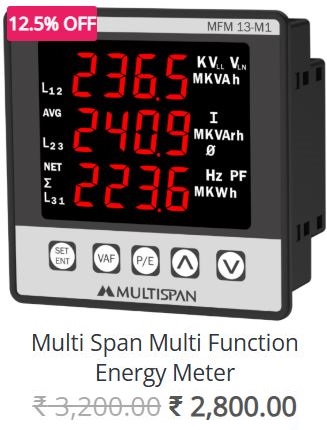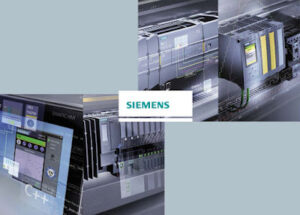In this blog post, we will explore the different types of SPM automation, their applications, and how PLCs, such as those from Delta and Siemens, are playing a crucial role in modernizing these machines.
What Are Special Purpose Machines (SPMs)?
Special Purpose Machines (SPMs) are equipment designed for a specific task or set of tasks in industrial environments. Unlike general-purpose machines that can perform a wide range of functions, SPMs are engineered to achieve higher efficiency and precision in specific processes such as assembly, testing, inspection, or packaging.
The main advantage of SPMs is their ability to optimize production by automating repetitive tasks, reducing human error, and increasing overall throughput. The rise of automation technologies, particularly PLCs, has significantly enhanced the functionality and flexibility of these machines, making them more adaptable and efficient.
Types of SPM Automation
SPM automation comes in various forms, depending on the specific needs of the industry or application. Here are some common types of SPM automation and their applications:
1. Assembly Line Automation
Application: Automotive, Electronics, Consumer Goods
SPMs used in assembly line automation are designed to perform specific tasks such as placing parts, tightening screws, or welding components in a highly precise and repeatable manner. These machines are built to integrate seamlessly into production lines, increasing production speed and reducing manual labor.
PLC Role: PLCs, such as Siemens’ S7 series or Delta’s DVP series, are commonly used to control and synchronize the entire assembly process. These PLCs ensure that each task is performed at the right time, with the right amount of force and precision, ensuring high-quality output.
2. Packaging Automation
Application: Food and Beverage, Pharmaceuticals, Consumer Products
Packaging SPMs automate the process of filling, sealing, labeling, and packing products. These machines are critical in industries that require high-speed packaging with minimal human intervention. For example, in the food and beverage industry, packaging SPMs must handle products gently while maintaining hygiene and safety standards.
PLC Role: PLCs are central to packaging SPMs, enabling real-time control over processes like product counting, filling volumes, and sealing operations. Siemens PLCs with integrated motion control, or Delta PLCs with their high-speed processing capabilities, ensure precise control of the packaging lines, improving throughput and product consistency.
3. Material Handling Automation
Application: Warehousing, Logistics, Manufacturing
Material handling SPMs are used for transporting goods from one point to another within a factory or warehouse. These machines include conveyors, automated guided vehicles (AGVs), and robotic arms designed to automate the movement, sorting, and storage of materials.
PLC Role: PLCs like Delta’s DVP series and Siemens’ S7-1500 series offer the reliability and flexibility needed for controlling complex material handling systems. These PLCs are programmed to ensure smooth coordination between robots, conveyors, and other automated devices, allowing for efficient material flow across the factory floor.
4. Inspection and Testing Automation
Application: Electronics, Automotive, Pharmaceuticals
SPMs designed for inspection and testing are used to verify product quality and ensure compliance with industry standards. These machines perform tasks such as visual inspection, dimensional checks, leak testing, and functional testing. For instance, in electronics manufacturing, these SPMs ensure that components are free from defects before they are assembled into final products.
PLC Role: PLCs manage the data collection, processing, and control of testing and inspection procedures. Siemens’ S7-1200 series and Delta’s DVP series provide the high-speed processing and precision required for executing automated tests, ensuring that only products that meet quality standards move forward in the production line.
5. CNC and Precision Machining Automation
Application: Aerospace, Medical Devices, Metalworking
SPMs in CNC (Computer Numerical Control) and precision machining automation are used for tasks that require high levels of accuracy, such as milling, drilling, and turning. These machines are essential in industries like aerospace and medical devices, where the slightest error in machining could lead to catastrophic results.
PLC Role: Siemens PLCs, especially the S7-300 and S7-1500 series, are designed for precision control in CNC machines. Delta PLCs, on the other hand, offer advanced motion control capabilities that enable precise operations in machining processes. PLCs coordinate the movement of tools, control the feed rate, and ensure that each cut or drill is executed with maximum precision.
6. Robotics Automation
Application: Assembly, Packaging, Material Handling
Robotics in SPM automation includes the use of robotic arms, collaborative robots (cobots), and autonomous mobile robots (AMRs) for tasks like picking and placing, packaging, and material handling. These robots can perform repetitive tasks with high precision, reducing labor costs and increasing production efficiency.
PLC Role: Both Siemens and Delta PLCs are equipped with motion control and robotic integration capabilities. For instance, Siemens’ TIA Portal software allows for seamless integration of robotic systems into SPMs, enabling precise control over movements and tasks. Delta PLCs also offer easy integration with industrial robots, ensuring smooth operations across multiple automation processes.
The Role of PLCs in SPM Automation
PLCs are the backbone of modern SPM automation systems, offering flexibility, reliability, and scalability. These devices allow for the control of numerous processes, integrating sensors, actuators, and robotic arms into a cohesive and efficient system. Leading PLC brands like Siemens and Delta provide specialized solutions tailored to the needs of SPMs:
- Siemens PLCs, such as the S7-1200 and S7-1500 series, are known for their scalability and ability to handle complex automation tasks, from basic control to motion and robotics integration. Siemens also offers software solutions like TIA Portal, which provides a seamless platform for designing, programming, and commissioning SPMs.
- Delta PLCs, such as the DVP series, are known for their high-speed processing capabilities and modular design. These PLCs are highly adaptable to different SPM applications, providing precise control over automation processes and ensuring high reliability in demanding industrial environments.
Applications of SPM Automation Across Industries
SPMs are used in a variety of industries to meet the specific needs of each sector. The adaptability and versatility of SPMs make them essential in industries such as:
- Automotive: Assembly line automation, testing, and inspection.
- Electronics: Circuit board assembly, quality control, and packaging.
- Pharmaceuticals: Packaging, labeling, and testing for compliance with health regulations.
- Food and Beverage: Packaging, filling, and sorting processes.
- Aerospace: Precision machining, testing, and assembly.
By integrating PLCs, Delta, and Siemens automation systems, manufacturers can achieve greater productivity, consistency, and efficiency while reducing human error and operational costs.
Conclusion
The evolution of SPM automation has transformed industrial production, offering tailored solutions that improve speed, precision, and flexibility. From assembly and packaging to precision machining and robotics, the applications of SPMs are vast and varied. PLCs from leading brands like Delta and Siemens play a critical role in controlling and optimizing these systems, ensuring that manufacturing operations remain efficient, reliable, and scalable.
















